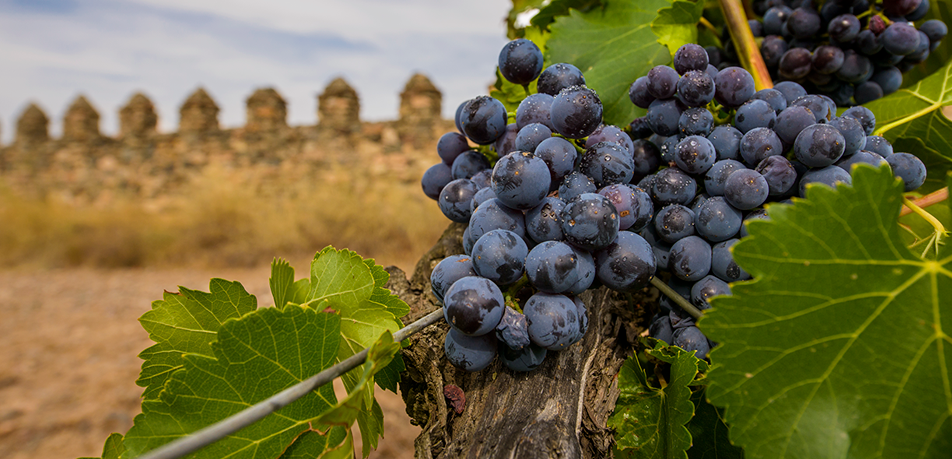How climate change is affecting the wine harvest

A bioindicator is what scientists call animal or plant species whose presence or behavioral changes point to an alteration in the environmental conditions of their ecosystem: storks that no longer migrate and become sedentary, tropical insects that spread across Europe, beech groves that give way to encroaching oak trees... Global warming forces species to adapt to these new scenarios, which turns them into a bioindicator.
Climate scientists are paying increasingly close attention to changes in the distribution and biology of species, including those used for crop production. The grapevine is displaying one of the clearest reactions.
[[{"fid":"20716","view_mode":"default","fields":{"format":"default","alignment":"","field_file_image_alt_text[und][0][value]":false,"field_file_image_title_text[und][0][value]":false},"type":"media","field_deltas":{"1":{"format":"default","alignment":"","field_file_image_alt_text[und][0][value]":false,"field_file_image_title_text[und][0][value]":false}},"link_text":null,"attributes":{"height":7883,"width":11811,"style":"height: 334px; width: 500px;","class":"media-element file-default","data-delta":"1"}}]]
Carignan grapes at the Grans Muralles estate(DO Conca de Barberà) about to be harvested.
Although the grapevine needs a certain amount of water stress to perform under foreseeable conditions, the current change in rainfall patterns—with increasingly severe and recurring droughts—and the constant rise in temperatures—with increasingly extreme heat waves—are altering the natural process of grape maturation.
Professor Fernando Zamora, dean of the Enology Department at Rovira i Virgili University, and one of the leading experts in Spain, provides an example in the documentary El vino y el clima: una relación amenazada [Wine and climate: a relationship under threat], produced by Familia Torres and aired on TVE, national Spanish television.
His team has observed that in the Conca de Barberà appellation of origin, the harvest of the Macabeo variety has been brought forward 30 days over the past 30 years: in other words, one day per year. We can find similar examples (even faster moving ones) in other appellations and varieties.
But, what happens if the harvest is brought forward a month? Well, our expert tells us that it produces a serious alteration in the crop, which can affect the quality of the wine
[[{"fid":"20717","view_mode":"default","fields":{"format":"default","alignment":"","field_file_image_alt_text[und][0][value]":false,"field_file_image_title_text[und][0][value]":false},"type":"media","field_deltas":{"2":{"format":"default","alignment":"","field_file_image_alt_text[und][0][value]":false,"field_file_image_title_text[und][0][value]":false}},"link_text":null,"attributes":{"height":706,"width":1255,"style":"height: 281px; width: 500px;","class":"media-element file-default","data-delta":"2"}}]]
Rainwater from the facilities of the Familia Torres winery (Pacs del Penedès) It is collected in a tank where it is pumped to the raft for use as running water.
While sugar levels in the grapes increase (resulting in wines with higher alcohol content) and changes in pH accelerate (affecting acidity), the skins and seeds of the berries ripen at a slower pace, leaving less and less leeway for clusters to mature by the time the grapes are picked.
The problem is that if global warming escalates further, as predicted in the climate models that experts have formulated, this developmental imbalance will worsen to such a degree that it might become impossible to produce quality wines.
The answer to this challenging dilemma is to start implementing adaptation strategies—something that Familia Torres, for example, is putting greater emphasis on than ever before.
